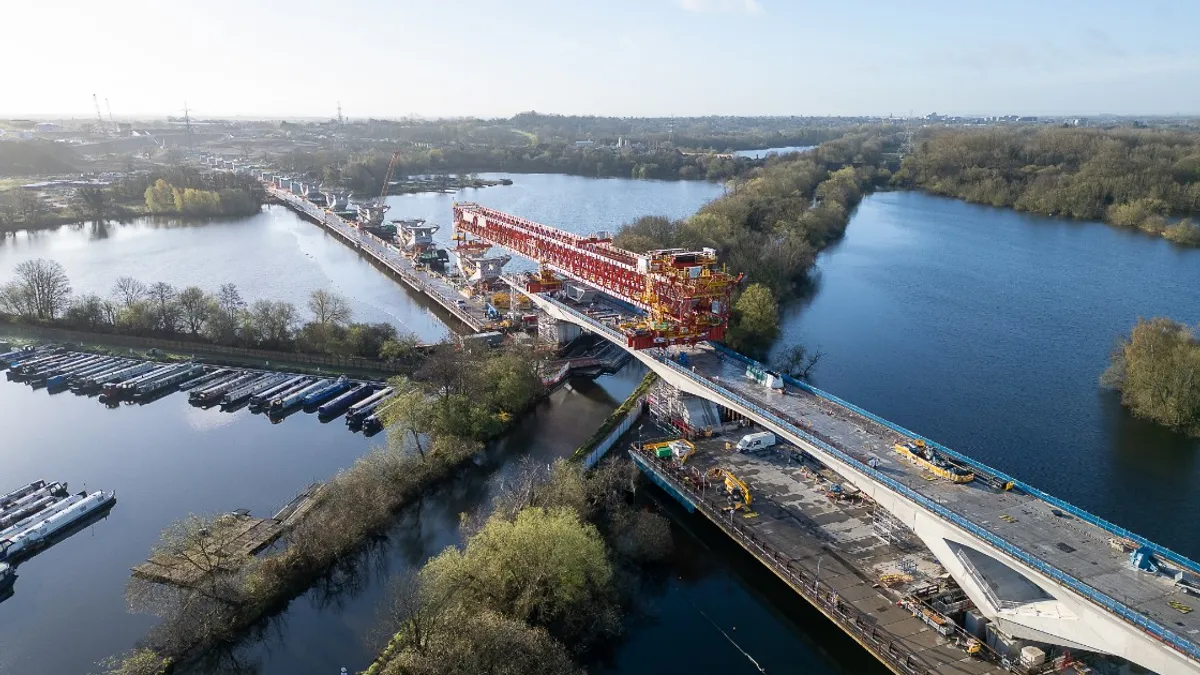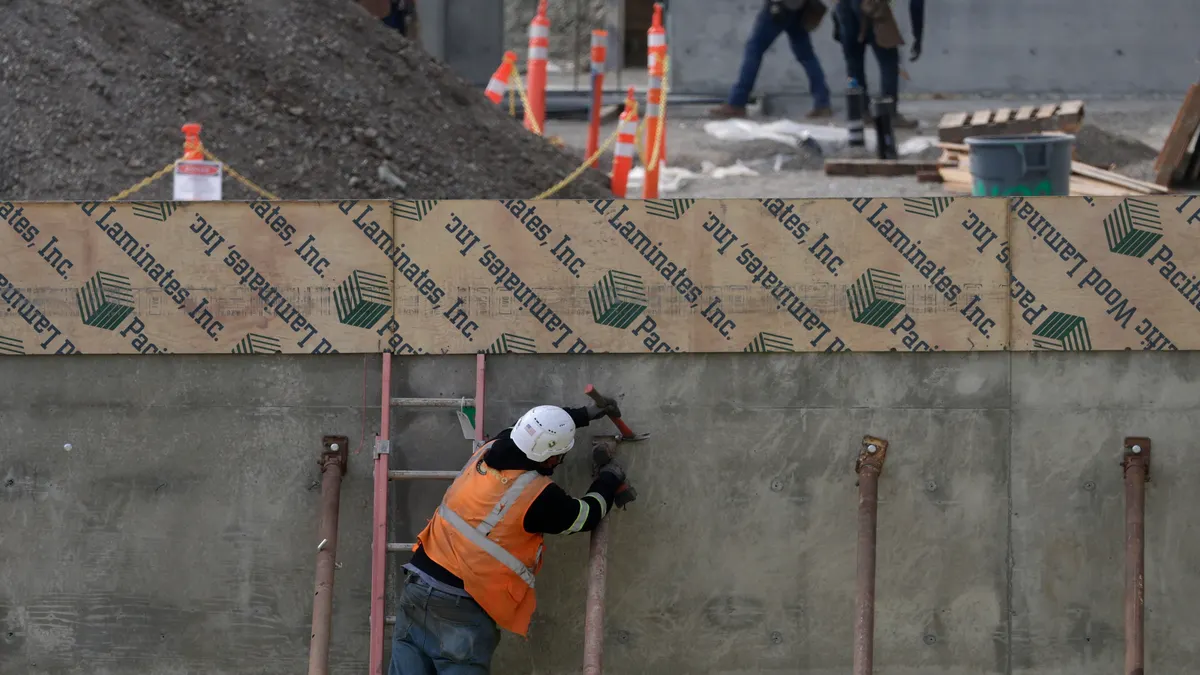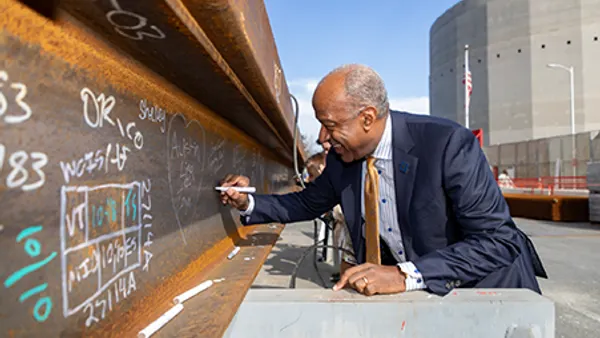Balfour Beatty has plenty of faith in the infrastructure construction market both in the U.K. and the U.S. as the company remains on track to deliver its full-year expectations, leaders of the London-based builder said during its earnings call on Wednesday. But cost overruns at a highway project in Texas put a blemish on its first half results.
On a conference call to discuss those numbers, Leo Quinn, Balfour Beatty’s CEO, highlighted the growing amount of work that the company is being contracted to perform, and once again touted the company’s selectivity as it continues its yearslong push to de-risk its portfolio.

These large infrastructure projects include the flagship HS2 job, a high-speed rail system across the U.K. that Balfour Beatty is working on with Paris-based Vinci.
Balfour Beatty is also working on the Sizewell C project, where the builder will deliver the main civil works alongside Laing O’Rourke and Bouygues Travaux Publics, the contractor announced on June 30. The U.K. government declared that it would invest at least 14.2 billion pounds ($19.3 billion) over the next five years.
“I'm very confident with the momentum in the business on the rising tide of infrastructure that we'll be actually delivering significant shareholder returns into the future,” Quinn, who is stepping down in September, said during the call.
So much work, so few workers
However, too much of a good thing has presented a problem — multiple times, Quinn noted that the demand for infrastructure construction is exceeding the supply of what contractors can provide due to lack of workers.
Quinn said that the company’s work de-risking its portfolio has helped buttress against the downside risks in new contracts. Specifically with power projects, he said that the company selected urban jobs to avoid having a situation where the company would need to deliver in a rural area.
With that downside risk capped, Quinn said, the upside incentives hinge on performance and rely on local supply chains as well as the company’s in-house capability.
“Let's face it. At this moment in time, infrastructure is booming, not only for us, but for everybody else. So it is a battle to recruit, retain the best and the brightest,” Quinn said.
By the numbers
Balfour Beatty reported a pre-tax profit of 132 million pounds ($179 million) in the first six months of the year, up 18% year-over-year from 112 million pounds in the first half of 2024. The company’s leaders also lauded the company’s order book, or backlog, which rose to 19.5 billion pounds, up year-over-year from 16.6 billion pounds, an approximately 17% increase.
The financials come on the back of a strong performance by the company in its U.K. construction segment, which pulled in approximately 1.6 billion pounds in revenue, an approximately 7% increase from the prior year’s 1.5 billion pounds, according to the firm. It also generated 56 million pounds in profit from operations, a gain of 65% from the prior year’s 34 million.
The U.K. segment also hit its 3% margin target a year earlier than the company anticipated it would, according to the news release.
Across the pond, however, the firm’s U.S. construction segment recorded an 11 million pound loss for the first half, compared to 18 million pounds in profit during the same period in 2024. That loss came on 2.1 billion pounds of revenue, up 24% year over year from 1.7 billion pounds.
While the company’s U.S. Buildings segment offered a strong performance, cost overruns at a highway project in Texas dragged on its Civils business. Quinn told investors that design issues had led to rework on the project.
Phil Harrison, Balfour Beatty’s CFO, said that the company was seeking to recover the costs. In prior years, Harrison said, highway projects in the Southeast and Texas were profitable, and he expected that to be the case again going forward.
The company also recorded losses in its infrastructure investments and corporate activities segments, according to the news release. Harrison said that a key driver of the losses was an independent compliance monitor, a condition of the builder’s military housing fraud guilty plea in 2022. A corporate monitor keeps an eye on how companies comply with agreements and settlements post-court.
Balfour Beatty agreed in principle to extend the monitor’s oversight to June 2026, which Harrison said was enough time to remediate outstanding work in the first half of the year.
















